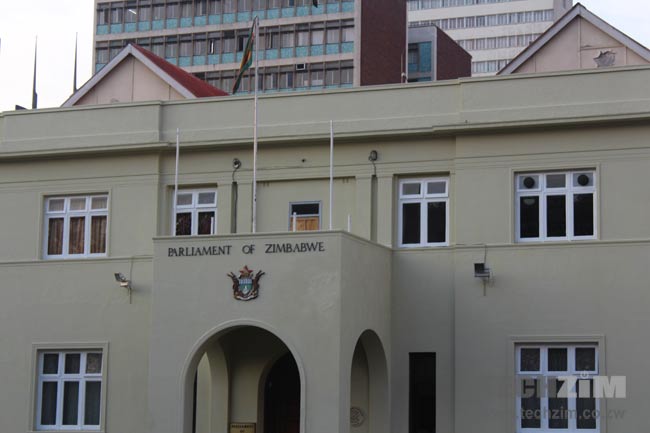(Image via Getty)
Over the past several years, you may have come across articles discussing possible changes to 47 U.S. Code § 230. For anyone who is not aware, Section 230(c)(1) guarantees that “No provider or user of an interactive computer service shall be treated as the publisher or speaker of any information provided by another information content provider.” Basically, Section 230 allows companies on the internet “to moderate content without becoming liable for it,” however, Section 230(c)(2) also requires that content hosts exercise “good faith” moderation practices to restrict access of “obscene,” or “excessively violent” material.
For years now, there has been a narrative regarding Section 230 liability protections, from both the political right and left, that characterizes the statute as “a gift” to giant internet-based companies. After last week, however, that narrative was affirmatively shattered.
As Mike Masnick at Techdirt makes clear, the giants of the internet industry, like Facebook, have recognized that not only can they survive without Section 230 liability protections, but that removing them would help eliminate competitors. Why? Well, without Section 230 liability protections websites are not going to host much user content given that it would open them up to lawsuits. I probably don’t need to tell anyone reading this, but litigation can be ruinously expensive, and as we have seen on an almost a weekly basis at this point, lawsuits can be weaponized by those in power in order to silence critical speech.
This is why protections like Section 230 that shield companies or individuals from ruinous, frivolous lawsuits become necessary. For a company as gigantic as Facebook, however, which has an army of attorneys on staff, the threat of lawsuits is far less of a concern. This is why supporting the repeal of Section 230 has become what Masnick calls a “strategic choice” for Facebook to harm and stifle its smaller competition.
Equally alarming to the news that Facebook is openly engaged in an effort to repeal Section 230, last week on February 19, the United States Department of Justice held a workshop called Section 230 — Nurturing Innovation or Fostering Accountability? For an in-depth breakdown on the entire workshop, Techdirt has a fantastically detailed three-part series you can find here. For general purposes, however, it need only be said here that the workshop made clear this current administration is firmly committed to repealing Section 230 protections.
Accordingly, with both big tech and the DOJ on board, and throw in bipartisan support gaining in Congress for good measure, it is officially time for those who value Section 230 protections to panic.
To understand what is at stake, consider that David Post, an expert in intellectual property law, considers Section 230 to have “been responsible for the creation of more value” than any other sentence in the U.S. Code. Per Post: “It is impossible to imagine what the Internet ecosystem would look like today without it. Virtually every successful online venture that emerged after 1996 — including all the usual suspects, viz. Google, Facebook, Tumblr, Twitter, Reddit, Craigslist, YouTube, Instagram, eBay, Amazon — relies in large part (or entirely) on content provided by their users, who number in the hundreds of millions, or billions … . I fail to see how any of these companies, or the thousands more like them, would exist without Section 230. The potential liability that would arise from allowing users to freely exchange information with one another, at this scale, would have been astronomical, and it is impossible for me to imagine, say, an investor providing funds for any of these ventures in a world without Section 230. [And it is not a coincidence, in my view, that these companies are all U.S.-based, no 230-like immunity being provided in most other legal systems around the world.]”
My former law professor and friend, Derek Bambauer, who teaches Internet law and intellectual property at the University of Arizona agrees with me that it’s time to panic, and in an email described our current situation this way: “The great genius of the Internet is that it empowers everyone connected to it to become an author, a composer, an artist — and to find an audience for their craft. As Justice John Paul Stevens wrote more than twenty years ago, any Internet user ‘can become a town crier with a voice that resonates farther than it could from any soapbox.’ The explosion of user-generated content that we love — from memes to fan fiction to cat videos — depends largely on the protections that Section 230 offers. Without it, platforms bear the risk that content they carry will create ruinous liability. Internet firms, like all companies, are risk-averse. Diminishing Section 230’s protections will decrease outlets for expression and will undercut our ability to benefit from the vast human creativity that, right now, is only an iPhone camera and a few clicks away.”
Repeal would also return us to the great common law dilemma that led to Section 230. In the 1990s, two cases had established the precedent that if content providers imposed virtually any form of control over user content, they could be held liable. In other words, the choice for content providers prior to Section 230 was extreme censorship or none. This is a vastly different internet than what most of us are used to, and if you value it, recent events demonstrate you’re going to have to fight for it.
 Tyler Broker’s work has been published in the Gonzaga Law Review, the Albany Law Review, and is forthcoming in the University of Memphis Law Review. Feel free to email him or follow him on Twitter to discuss his column.
Tyler Broker’s work has been published in the Gonzaga Law Review, the Albany Law Review, and is forthcoming in the University of Memphis Law Review. Feel free to email him or follow him on Twitter to discuss his column.

















 Jordan Rothman is a partner of
Jordan Rothman is a partner of 
